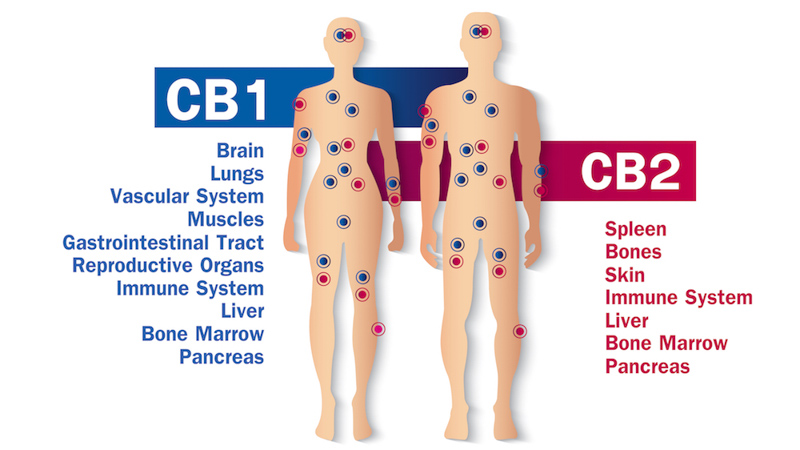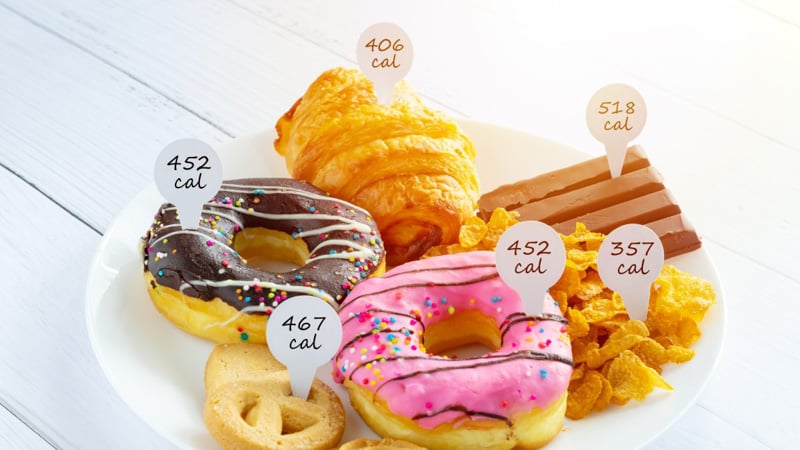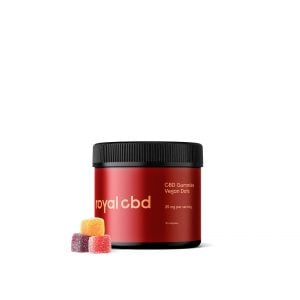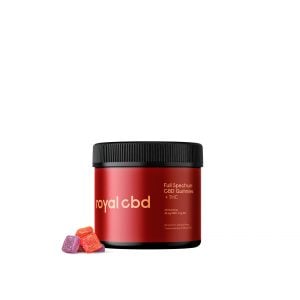Most people don’t associate CBD with weight loss, believing that cannabis can do the exact opposite — increase hunger instead of reducing it. But this effect isn’t linked to CBD perse. The so-called munchies are the signature effect of marijuana use.
CBD is known for countering some of the THC’s effects, but can it also contribute to weight loss?
Is there any evidence supporting the alleged metabolism-boosting properties of cannabidiol?
Numerous studies have linked using CBD to reduced body mass index (BMI), smaller waist circumferences, and lower body weight in general.
Of course, this doesn’t mean you should ditch a healthy diet and active lifestyle, and rely just on CBD.
What you can do, however, is add CBD to your regime to boost the effectiveness of your exercise and nutrition.
Continue reading to learn more about the potential benefits of CBD for weight loss.
Can You Use CBD for Weight Loss?

Metabolic conditions have recently been linked to clinical endocannabinoid deficiency — a state where the endocannabinoid system (ECS) doesn’t produce enough endocannabinoids to support homeostasis within the body.
The ECS is the major native regulatory network in humans, with cannabinoid receptors found throughout the body. There are cannabinoid receptors in every organ of your body, but the highest concentrations occur in the nervous and immune systems.
The neurotransmitters released by the ECS are endocannabinoids. The body needs them to send messages to cells through the cannabinoid receptors. Phytocannabinoids — those derived from cannabis plants — like CBD and THC are very similar to endocannabinoids on a molecular level.
The endocannabinoid system is engaged in a wide range of essential processes, including memory, mood, inflammation, body temperature, appetite, fertility, pain transmission, sleep cycles, and more.
The role of the ECS is to maintain balance in all of those functions. This balance is referred to as the aforementioned homeostasis, and when compromised, it can cause a person to suffer from either hypo-activity or hiper-activity of the endocannabinoid system, creating space for dysfunctions and diseases to develop.
Recent studies examining the problem of diabetes, metabolic syndrome, and obesity, have suggested a link between these diseases and endocannabinoid deficiency [1].
According to Alicia Salazar, a New York state board-certified health coach, CBD and other cannabinoids may be beneficial for weight loss:
“I don’t look at CBD as a magic bullet for weight loss. But along with a healthy diet — one that contains healthy fats, whole grains, grass-fed meat and dairy, and plenty of greens, without processed foods and sugar — sets the tone for a healthy weight. And for some, that can naturally include weight loss.”
Learn More: How Does CBD Work in Your Body?
What Are the Potential Benefits of CBD for Weight Loss?

The mechanism behind weight gain is simple — we take in more calories than we can burn (let out).
Our native ability to burn fat is controlled by a range of factors, and disturbed metabolism often stems from hormonal imbalances and changes in metabolic rate, inflammation status, and the functioning of the endocannabinoid system.
The ECS is a bridge between the digestive, immune, and nervous systems, allowing your body to maintain a healthy balance between them and promote steady weight loss.
How can you use CBD to modulate the endocannabinoid system and contribute to a faster metabolism?
Here’s what the latest studies are saying about using CBD for weight loss
1. Helps Regulate Appetite
Many CBD users have found that CBD oil helps them lose weight by reducing their appetite.
The majority of people associate cannabis with appetite stimulation, but while it’s true that CBD may increase your appetite, CBD can do quite the opposite.
THC activates the CB1 cannabinoid receptor in the brain, causing a variety of effects, including a boost in appetite. However, according to one 2018 study, CB1 receptor blockers may help reduce appetite and control obesity because they are able to dampen its activity [2].
Although CBD isn’t able to activate CB1 receptors directly, it can signal other molecules to block them off, reducing appetite and preventing binge eating in some people.
Finally, a 2012 study conducted on animal models showed reduced appetite in rats after being treated with CBD [3]. While there is plenty of anecdotal evidence supporting CBD’s ability to suppress appetite, there have been no human trials in this area yet.
2. Promotes Fat Browning
CBD proponents also believe that CBD can turn white (or bad) fat into brown fat, which may enhance the body’s ability to burn calories.
A 2016 study supports the theory about fat conversion [4]. Researchers engaged in that study found that CBD can influence the way the body interacts with fat in many different areas.
CBD helped to turn white fat cells into brown cells, contributing to a more efficient breakdown of lipids within the body.
Brown fat cells are more active than white fat cells. They use energy as heat, spurring thermogenesis, and increasing the body’s ability to burn calories.
3. May Reduce the Risk of Metabolic Disorders
In a 2018 study on CBD and metabolic disorders, researchers have proposed obesity as the potential trigger of hypertension, high cholesterol, and type 2 diabetes [5].
This may happen through the overstimulation of the CB1 receptors in the body. When CB1 receptors are overactive in the fat tissue throughout the body, this may lead to obesity and a variety of metabolic symptoms.
Since CBD can indirectly block off the CB1 receptors, it might also lower the risk of obesity.
A review in Cannabis and Cannabinoid Research mentioned several past studies that investigated CBD’s potential to manage metabolic disorders, mainly in rodents [6]. For example, rats that were administered CBD showed decreased total cholesterol by 25 percent at the end of the study. Moreover, the anti-inflammatory and antioxidant properties of CBD also led to lower blood sugar levels and improved markers for liver health.
4. Supports the Body’s Ability to Use Glucose

CBD can help you take care of healthy metabolic processes.
A healthy metabolic process means that when you eat food, your blood sugar levels rise, and then the pancreas releases insulin to transport the glucose to the body cells. The cells use glucose as an energy source.
When your diet regularly provides excess glucose, the system will get compromised. As body cells are bathed in glucose, they become resistant to insulin’s signaling to fuel the cell with energy.
When glucose levels get dangerously high in the body, the pancreas begins to store insulin as a result. The intense secretion of insulin will cause glucose levels to peak.
The above situation may promote unhealthy metabolism, in which you eat food, blood sugar levels rise, but the insulin resists transferring the glucose to the cells, so the liver starts converting sugar to fat in order to protect the body against high sugar levels. The cells are left without energy, so they crave sugar and increase hunger.
In a 2018 study, cannabinoids like CBD, CBN, and THC were shown to boost cells’ ability to absorb glucose in a similar way to metformin, a commonly prescribed medication for diabetes [7].
If the body can use more sugar from the blood, it doesn’t convert it into fat, helping us maintain a steady appetite.
5. May Help with Mitochondrial Dysfunction
Mitochondria are like energy facilities for cells. When insulin transports glucose to the cell, the mitochondria use it to produce energy for the body and brain. However, when your metabolism is impaired and insulin refuses to fuel cells with glucose, the mitochondria’s function is compromised too.
Mitochondrial dysfunction is involved in the majority of conditions that include glucose fluctuation and may be one of the driving factors for developing cancer in the digestive system. On the other hand, healthy mitochondria ensure long-lasting vitality.
In a 2016 study, researchers analyzed the impact of CBD on the metabolic health of fat cell cultures [8]. The study found a significant improvement in mitochondrial function after CBD was administered.
6. Reduces Inflammation
CBD can improve the communication between cells in the immune system, contributing to lower inflammation. Metabolic conditions often involve chronic inflammation, especially in the pancreas.
A hyperactive pancreas secretes too much insulin, leading to inflammation in the entire gland and damaging the beta cells that produce insulin.
When the body isn’t able to produce sufficient levels of insulin any longer, it can significantly increase the risk of diabetes and obesity.
In a 2016 study, scientists discovered a link between inflammation and an overstimulated endocannabinoid system [9]. They also found that CBD can help fix this dysfunction thanks to its antioxidant and anti-inflammatory properties.
7. Stimulates Regeneration Processes in the Liver
Another common sign of diabetes and obesity is damage to liver cells. The liver is a key player in the conversion of stored and usable energy in the body. Eating too much sugar on a regular basis can seriously damage this system. Inflammation within the liver heralds the onset of dysfunction and may contribute to non-alcoholic fatty liver disease.
In 2015, researchers examined the impact of CBD and THCV on metabolic dysfunction [5]. The results led to the conclusion that non-psychoactive cannabinoids can lower the number of triglycerides in the liver by slowing their buildup. They also helped lower blood pressure and improved insulin resistance in human subjects with type 2 diabetes. The researchers attributed those improvements partially to the anti-inflammatory properties of CBD.
Can You Gain Weight Using CBD?
Due to the generalization of cannabis users, CBD has long been associated with the risk of weight gain with consistent use. As mentioned earlier in the article, this feature is typical to marijuana strains and products high in THC. In hemp-derived extracts, THC levels are under 0.3%, which isn’t enough to induce intoxication.
But even when you consume a marijuana-derived CBD oil, the ratios of CBD to THC make it unlikely that you’ll run an assault on your fridge afterward.
To sum it up, you shouldn’t be concerned about gaining extra pounds when taking CBD oil.
Bottom Line: Should You Take CBD Oil for Weight Loss?
Several studies have shown a link between dysfunctions in the endocannabinoid system and poor metabolism. Researchers propose that the levels of endocannabinoid activity should be a new marker for metabolic health.
Although CBD oil shouldn’t be treated as a miracle fat burner and a guarantor of a healthy digestive system, it can be a versatile tool for the regulation of metabolic processes in your body. Above all, remember to take care of healthy eating habits and make sure to exercise regularly. Nutrition-dense food and an active lifestyle can speed up your metabolism and protect you against obesity, diabetes, and other metabolic diseases.
We hope this article has helped you understand the potential benefits of using CBD for weight loss. Share it with your friends and leave a comment below if CBD has helped you lose extra weight!






